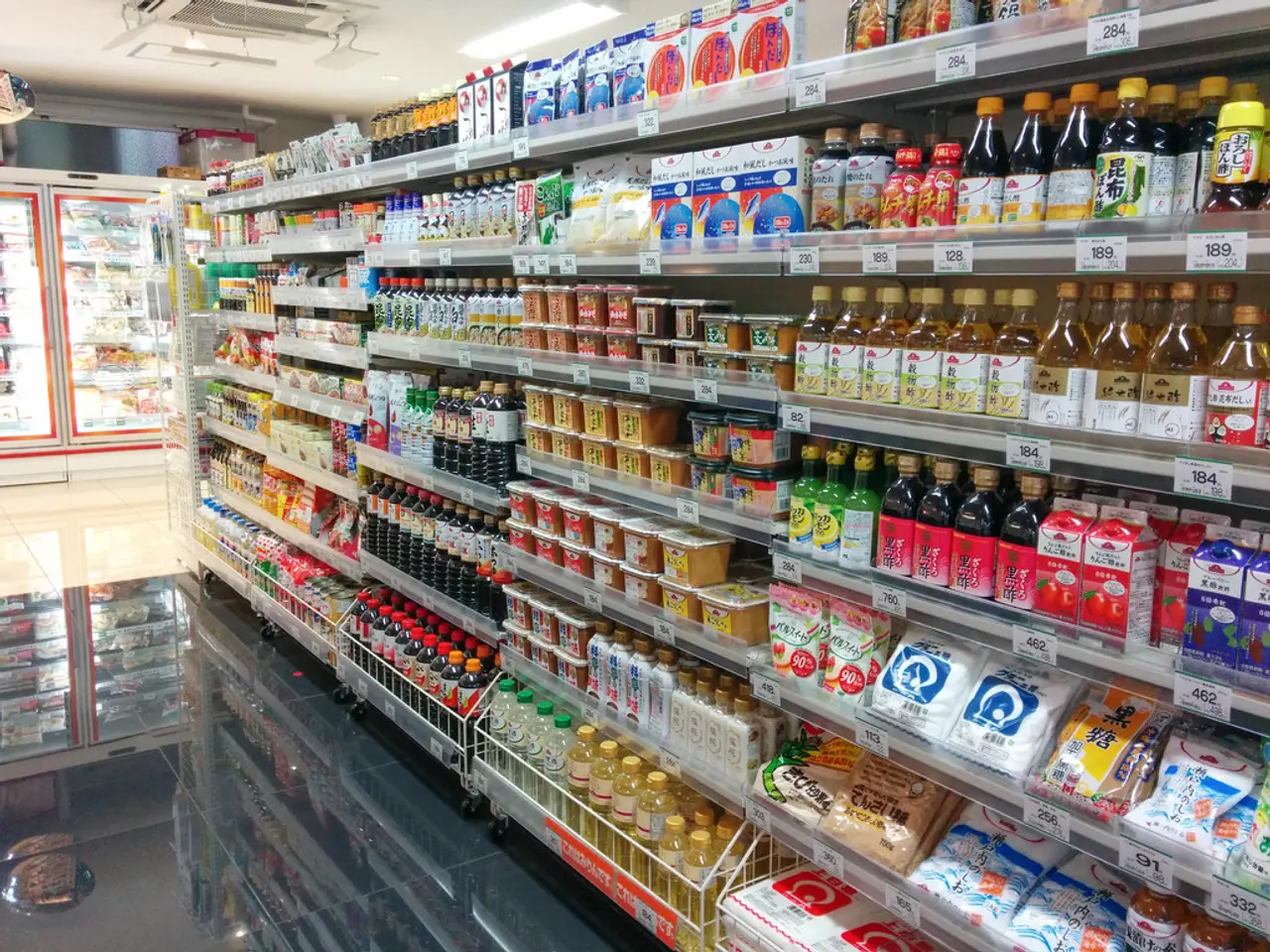Jack's Fast-Food Chain, Jack in the Box, resurfaces in Chicago, sparking queries and adaptations
In the fast-food industry, Jack in the Box Inc. has been navigating a tumultuous financial landscape marked by declining sales, shrinking revenues, and profitability pressures. Despite these challenges, the company is pursuing growth through selective restaurant openings, digital expansion, and strategic unit closures.
For the third quarter ended July 6, 2025, Jack in the Box reported a decline in total revenues of 9.8% year-over-year to $333.0 million. However, net earnings improved significantly to $22.0 million, contrasting a net loss of $122.3 million in the prior-year quarter. The company's growth strategy, termed "JACK on Track," centres on digital sales expansion and strategic unit closures to optimise profitability.
The brand faces intense competition in the quick-service sector and structural challenges in reversing traffic declines. Jack in the Box's same-store sales dropped 7.1% in the third quarter, with both franchise and company-owned stores impacted. Despite this, the company has been moderately expanding its restaurant count, gaining six new leases in Q2 and opening additional units in Texas in July.
Jack in the Box's return to Chicago after a 40-year absence could provide a foothold in the Midwest. The company announced a 12-unit franchising deal for Chicago in September of last year, with the first of eight locations opening this week. This return to Chicago was designed to highlight the company's return to unit growth.
However, the brand is at risk of falling behind up-and-coming chains Whataburger and Culver's in domestic system sales as soon as next year. Whataburger and Culver's have grown by at least 9.4% and are currently having no problems adding units. Jack in the Box's primary concentration in the Southwest, where economics are becoming increasingly unfavourable, may contribute to this challenge.
Valuation multiples suggest the stock may be undervalued, though execution risks remain due to inflationary pressures, debt burdens, and the uncertain turnaround plan. To address these concerns, Jack in the Box has decided to sell Del Taco, a secondary brand acquired in 2021, and will no longer pay a dividend as it works to pay down debt.
The company's growth approach balances cautious new unit openings and refranchising with an emphasis on digital transformation. Jack in the Box's average-unit volumes have grown 28% since 2019, faster than Wendy's or Burger King and only moderately lower than McDonald's. The company offers a unique menu, including cheap tacos and egg rolls, which sets it apart from its competitors.
However, the company has been forced to close up to 200 restaurants and reduce openings of company locations. Sales for Jack in the Box could be depressed in regions with heavy Mexican-born populations due to the impact of the Trump Administration's immigration policies. The closures are intended to eliminate underperforming locations and allow for the opening of stores in better real estate.
In California, a $20 fast-food wage is driving up labour costs for Jack in the Box, adding to the company's financial woes. Jack in the Box's stock price is down 48% so far this year, 61% over the past year, and 72% since 2019. The company's CEO, Darin Harris, left in January and was ultimately replaced by the brand's CFO, Lance Tucker.
Despite these challenges, Jack in the Box remains a significant player in the fast-food industry. Its unique menu and strategic growth approach offer potential for the company to regain its footing and compete effectively in the increasingly competitive landscape.
- Jack in the Box Inc., even with its struggles in the fast-food industry, is employing a strategic growth approach through "JACK on Track," focusing on digital sales expansion, unit closures, and new restaurant openings, such as the recent franchising deal for 12 units in Chicago.
- Recognizing the challenges posed by financial pressures, intense competition, and structural issues, Jack in the Box is making bold moves like selling off the secondary brand Del Taco and halting the dividend payments to address debt and work towards a more promising financial future in the restaurant finance industry and franchising sector.




